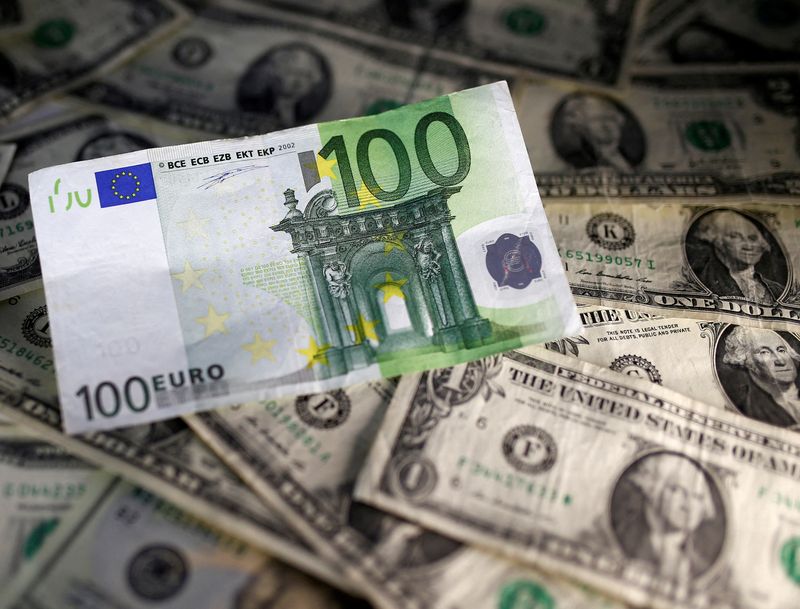By Ankur Banerjee and Harry Robertson
SINGAPORE/LONDON (Reuters) – The euro rose on Thursday despite the French government’s collapse, which was widely expected, while bitcoin galloped past $100,000 for the first time and the yen recovered as traders eyed the Bank of Japan’s decision about December 19.
The world’s best-known cryptocurrency has been in trouble since November on expectations that Donald Trump’s US election victory will usher in a friendly regulatory environment for cryptocurrencies.
It rose to a record high of $103,619 in Asian hours, boosted by President-elect Trump’s appointment of pro-crypto Paul Atkins to head the US Securities and Exchange Commission. It last raised $103,100, up about 5% on the day and taking year-to-date gains to more than 140%.
“There is reason to believe this case could continue,” said Kyle Rodda, senior financial markets analyst at Capital.Com, highlighting the friendlier regulatory environment.
The euro rose 0.23% to $1.0533, not far from a two-year low of $1.0332 in late November, as traders braced for a prolonged reckoning for France.
French lawmakers passed a vote of no confidence against the government on Wednesday evening, plunging the country deeper into a crisis that threatens the country’s ability to rein in a huge budget deficit. The risk premium – or spread – that investors demand to hold French government bonds over German ones has risen to about the highest level since 2012.
The euro rose despite the uncertainty because the government’s collapse was already priced in, said Lee Hardman, senior currency analyst at MUFG.
‘The contamination outside the French markets is quite limited. If you look at the spreads between (German and) Italian and Spanish bonds, they are actually falling, so it is not spreading to the European markets and that limits the impact on the European economy. ” he said.
Traders are almost certain that the European Central Bank will cut rates next week, pricing in an easing of around 157 basis points by the end of 2025.
The YEN is gaining ground
In Asia, the Japanese yen rose to 149.66 but was last up 0.13% at 150.44 as traders assessed whether the Bank of Japan will raise interest rates later this month.
Analysts said comments from typically dovish policymaker Toyoaki Nakamura that he is not opposed to rate hikes helped push the currency higher.
Expectations had grown that the BOJ will raise rates at its December 18-19 meeting, buoyed by comments from Governor Kazuo Ueda. But media reports published on Wednesday suggested the BOJ could skip a rate hike this month, throwing those bets into disarray.
The South Korean won fell slightly as the country’s Finance Ministry said the government would activate 40 trillion won ($28.35 billion) in market stabilization funds following the chaos that ensued after President Yoon Suk Yeol declared martial law on Tuesday and subsequently withdrew it.
The , which measures the US currency against six rivals, was slightly lower at 106.18.
Sterling rose 0.17% to $1.2724, while the Australian dollar was flat at $0.6431, having fallen about 0.9% in the previous session on weak data.
Federal Reserve Chairman Jerome Powell said on Wednesday that the US economy is now stronger than the central bank expected when it began cutting interest rates in September, and he appeared to express support for a slower pace of future cuts .

However, bets on Fed rate cuts remained largely steady, perhaps driven by weaker-than-expected services sector data released on Wednesday. Markets estimate about a 74% chance of a 25 basis point rate cut later this month.
The spotlight will be on Friday’s U.S. nonfarm payrolls report for November, which is expected to show 200,000 new jobs this month, after just 12,000 jobs were created in October, the lowest since December 2020, according to a Reuters survey.


